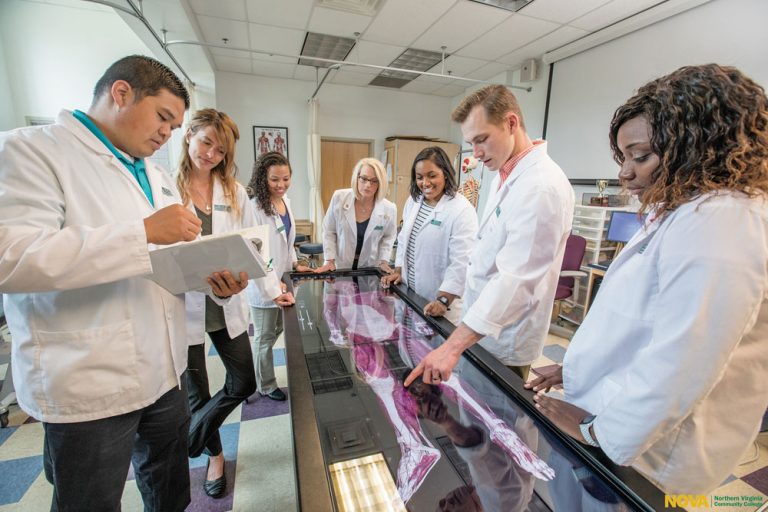Strong Educational Network Draws Global Talent to Northern Virginia
Career mobility and quality-of-life amenities attract talent to Northern Virginia

It was not that long ago, Karen Coltrane recalls, when communities would try to attract companies so that residents would have job opportunities.
“Now it’s actually the opposite,” says Coltrane, president and CEO of the Leadership Center for Excellence. “You attract the people because the people aren’t going to move somewhere they don’t want to be. Northern Virginia has been smart to be out in front of that. The energy and the vibe in the whole greater D.C. area, but particularly Northern Virginia, is strong. Just sitting in a restaurant at night and just quietly listening to the table conversations around me, I hear people talking about their work and the exciting things that they’re doing. People are connecting.”
Communities across Northern Virginia are tapping into their advantages in career mobility and leadership opportunities, as well as quality-of-life amenities such as outdoor recreation, and arts and cultural offerings, to draw talent.
Targeting Top Talent
The Leadership Center works to connect leaders from across government, industry and the nonprofit sector to learn from each other and strengthen their respective organizations and the community as a whole.
The center’s young professionals group targets emerging leaders, helps them build leadership skills and offers opportunities for networking, professional development and skills building. Coltrane says these programs help accomplish the center’s mission of expanding the leadership capacity in the community and also promote economic development.
“Nothing helps a new business in a community better than facilitating the relationships that they need to get settled in and meet the people they need to meet and be able to do what they want to do as far as hiring people,” Coltrane says. “We have 1,600 graduates of our programs, most of them still in our community, who understand the basics of leadership. They’ve built skills and connections in the community to get things done. The more people we train and put out into the workforce, the better it is for businesses that locate in our community.”
Advancing the Workforce
Another advantage Northern Virginia offers relocating and expanding companies is a network of more than 60 colleges and universities that draws students from around the world and helps supply workforce talent.
Northern Virginia Community College (NOVA) operates six campuses in the region. With a total enrollment of more than 75,000 students, NOVA is the largest education institution in the state and the second-largest community college in the country.
“From a sheer size standpoint, we touch a very large portion of the workforce in some form or fashion. A lot of people either graduate from NOVA or pass through on their way to a bachelor’s degree or beyond,” says Steve Partridge, the college’s vice president of workforce and economic development.
The college recently launched the NOVA Advance program, a partnership with George Mason University, which Partridge says will increase both schools’ roles in workforce development. The program offers a clear path to a four-year degree, beginning at NOVA and completing at GMU. Students are simultaneously admitted to NOVA and GMU and given a schedule that, if followed, leads to a bachelor’s degree at the end of that four years.
“Students are assigned a success counselor to make sure their transition is smooth over the four years. And it actually saves the students about $16,000 by pursuing this joint effort. Students get a Mason degree and a NOVA degree, but it saves them a lot of money by keeping them on track,” he says.
Not only that, but students in the program tend to enter the workforce sooner, which is good for economic development.
“The cost of staying in college longer doesn’t just impact the student and their family. It also impacts the business community because it keeps students from getting into the workforce,” Partridge says. “When businesses are desperate for skilled talent, [students] staying an extra semester or two really impacts the rate at which [companies] can grow and expand their business.”
